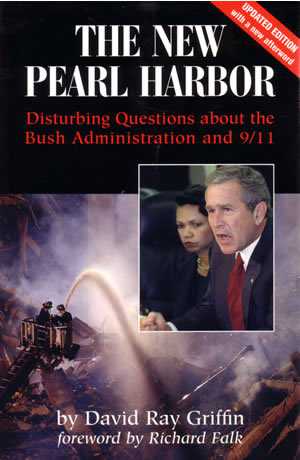“No Regrets” Zbignew Brzezinski building up the Mujahadeen (later called the Taliban) in Afghanistan in early ’80’s
Zbigniew Brzezinski, CFR Trustee and founder and Obama advisor, recently gave the CFR (Council on Foreign Relations) branch in Montreal a presentation discussing world government and his fears of the mass global awakening that has taken place.
Pushing his globalist agenda, he goes on to tout a “moral imperative..for a concentrated source of power that has universal reach”. As the talk unfolds you’ll notice he gives a clear outline of ways these prominent members can affect their particular areas of influence towards this plan. In attendance at these meetings are members of government, business leaders and media magnates.
CFR Meeting: Zbigniew Brzezinski Fears The Global Awakening
Zbigniew Brzezinski giving the CFR branch in Montreal a presentation discussing world government and his fears of the mass global awakening that has taken place.
More on Zbig
Brzezinski has gone on record with his global imperialist agenda many times. Not only does he attend and address secret CFR and Bilderberg Group meetings, in his seminal book “The Grand Chessboard” he revealingly writes:
“To put it in a terminology that harkens back to the more brutal age of ancient empires, the three grand imperatives of imperial geostrategy are to prevent collusion and maintain security dependence among the vassals, to keep tributaries pliant and protected, and to keep the barbarians from coming together.” (p.40)
He also includes these eerie and manipulative “observations”:
“The attitude of the American public toward the external projection of American power has been much more ambivalent. The public supported America’s engagement in World War II largely because of the shock effect of the Japanese attack on Pearl Harbor.” (pp 24-5)
“Moreover, as America becomes an increasingly multi-cultural society, it may find it more difficult to fashion a consensus on foreign policy issues, except in the circumstance of a truly massive and widely perceived direct external threat.” (p. 211)
What is PNAC?
Two years after the publication of “The Grand Chessboard”, another self appointed “Think Tank” called The Project for a New American Century (PNAC) masquerading as an “educational organization” issued a now-infamous report entitled Rebuilding America’s Defenses: Strategy, Forces and Resources For a New Century, September, 2000.
In the report, this hegemonist neo-conservative group clearly alligns with Mr. Brzezinki’s aspirations and methods and seemed to lay down a road map to Iraq and beyond.
“Further, the process of transformation, even if it brings revolutionary change, is likely to be a long one, absent some catastrophic and catalyzing event, like a new Pearl Harbor…”

While it may not name the tragic events of 9-11, at the least it’s a clear prediction of the sort of event that was required to speed up the “process of transformation” they were hoping for.
Machiavelli Would Be Proud
But that’s not all. Even scarier and more Machiavellian ideas are put forward in that report, many of which have come to pass.
“Preserving the desirable strategic situation in which the United States now finds itself requires a globally preeminent military capability both today and in the future.”
“Although it may take several decades for the process of transformation to unfold, in time, the art of warfare on air, land, and sea will be vastly different than it is today, and combat likely will take place in new dimensions: in space, cyber-space, and perhaps the world of microbes.
“Air warfare may no longer be fought by pilots manning tactical fighter aircraft sweeping the skies of opposing fighters, but a regime dominated by long-range, stealthy unmanned craft. On land, the clash of massive, combined-arms armored forces may be replaced by the dashes of much lighter, stealthier and information-intensive forces, augmented by fleets of robots, some small enough to fit in soldiers’ pockets.
“Control of the sea could be largely determined not by fleets of surface combatants and aircraft carriers, but from land- and space-based systems, forcing navies to maneuver and fight underwater. Space itself will become a theater of war, as nations gain access to space capabilities and come to rely on them; further, the distinction between military and commercial space systems combatants and noncombatants will become blurred. Information systems will become an important focus of attack, particularly for U.S. enemies seeking to short-circuit sophisticated American forces.And advanced forms of biological warfare that can target specific genotypes may transform biological warfare from the realm of terror to a politically useful tool.“
“Men are so simple and so much inclined to obey immediate needs that a deceiver will never lack victims for his deceptions.“
Niccolo Machiavelli

